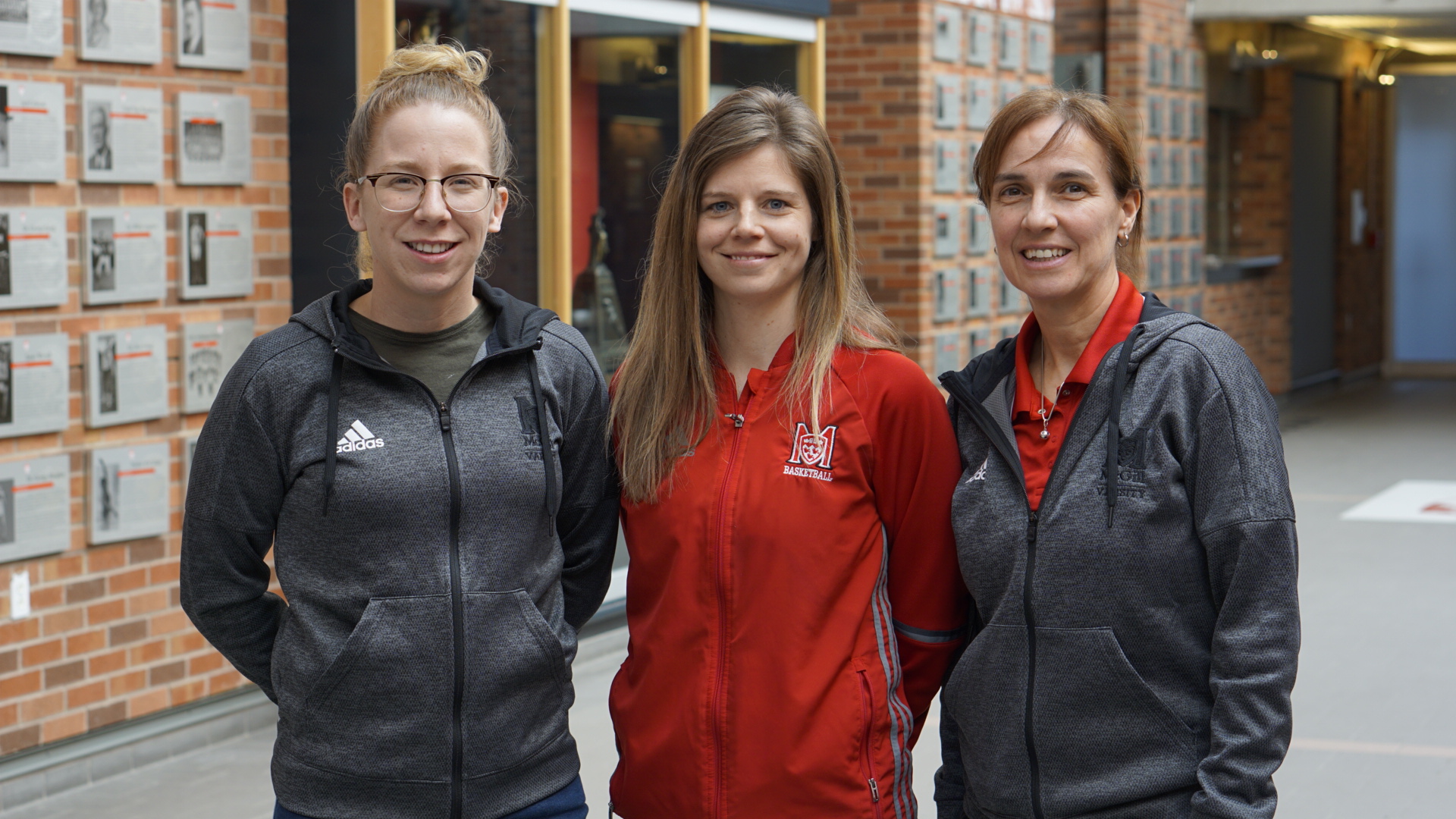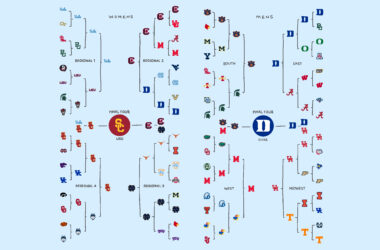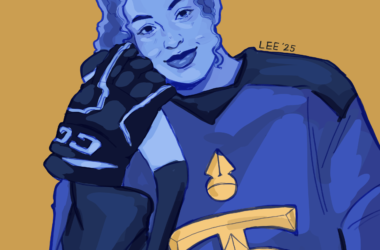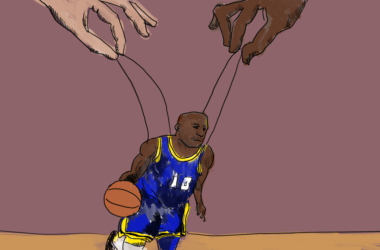In Sept. 2018, McGill Athletics and Recreation launched the new Women in Sports Initiative thanks to a $3.5 million donation from McGill alumni Sheryl and David Kerr. The initiative aims to promote women in leadership roles within McGill Athletics and help female athletes balance their academic obligations with their athletic time commitment. Hiring two women in full-time associate coach positions has been a key part of this initiative: Rikki Bowles joined the Martlet basketball team coaching staff, while Kelsey Wilson moved from a part-time position to a full-time one with the women’s soccer team.
These additions to the teams’ full-time staff have already made a significant impact on coaches and players alike.
“It’s important to have that possibility of having a female role model,” Wilson said in an interview with The McGill Tribune. “As a player, I didn’t necessarily have that when I was growing up. I think it’s important for young players, especially, to see that if they are interested in coaching, that it is a possibility, that you can continue on and develop and actually find full-time positions.”
Both Bowles and Wilson played for the Martlets during their undergraduate degrees at McGill. Fourth-year Martlet soccer winger Tia Lore agreed that it is comforting and inspiring to have someone who understands the players’ situation.
“It’s huge when you’re playing on a team, and you might be new to the team, or you feel like you’re not doing great, but you gain this confidence [from knowing that] she’s been through this, so she knows the struggles,” Lore said. “Seeing female coaches and having female coaches is super empowering. Having a coach empower you, not just as an athlete, but as a female athlete, is huge.”
In the future, Martlet volleyball will also benefit from the Kerr donation. The team is planning to expand their coaching staff. Meanwhile, the women’s hockey program has already been receiving support through the Kerr Martlet Hockey Coach Endowment. This endowment has funded the salaries for full-time Martlet hockey coaches since 2007. The team went on to win its first three national titles in the four years immediately following, demonstrating the immediate impact that additional full-time coaches can make.
The purpose of the Women in Sports Initiative is to support not only Martlet athletes, but also female coaches.
“Hiring two new people is already huge,” Sylvie Béliveau, senior advisor to the McGill varsity program, said. “It changes the lives of those two women. They can now bond with and better service their student-athletes.”
With these new positions, the women’s soccer and basketball teams now have more full-time coaching staff than their male counterparts. In almost every other sporting environment, including coaching, competing, and sports journalism, women are underrepresented. This move will give female athletes and coaches additional, valuable opportunities to pursue careers in sports.
“I don’t think we really knew what we could have [regarding having female coaches to learn from and look up to],” Lore said. “We weren’t [thinking that] we were missing this. It was more [realizing that] we should have had this before.”
The new hires from the Women in Sports Initiative are certainly making a positive impact. However, the move to provide extra support for female coaches and athletes was a slow one. A 2013 study found that only 22 per cent of head coaches and 17 per cent of assistant coaches in Canadian intercollegiate athletics were female. In the six years since the study was published, McGill’s female coaching statistics have been below national averages. While McGill was providing the same number of coaches to its men’s and women’s teams, the gender imbalance represents a failure to provide sufficient opportunities for female coaches until now.
The Kerr donation is a one-time donation, which means that the money will eventually run out. It is therefore necessary for McGill Athletics to implement a plan that reallocates funds so that they can continue to pay the program’s coaches. The initiative is still in its infancy, but its longevity appears to be a priority for now.
“Our goal is sustainability,” Béliveau said. “We’re thinking long term. It’s going to be a robust program, built on solid ground [….] It’s a 10 to 12 year program, but, past that, we want it to continue.”
The press release from McGill Athletics announcing the donation stated that the initiative would also fund additional resources for female varsity athletes in balancing the academic demands of McGill with their sports.
“The next step is [asking] how we can service them better,” Béliveau said. “We want to ask them [about what they need]. We’re looking at building a community of practice, for example.”
Managing the pressure of being a student-athlete is no easy feat, especially given McGill’s recent defunding of mental health services such as the Eating Disorder Program. Relying on private donorship to fund support programs for students, including student-athletes, gives the university administration an excuse not to provide crucial funding itself. Furthermore, donations often target a particular subset of students and do not effectively reach the entire McGill student population.
Expanding opportunities for female coaches in collegiate athletics is important, but such measures do not equally affect all women. Racial and socio-economic factors significantly impact the accessibility of these opportunities. Without a commitment to opening sporting environments to all backgrounds, starting at the youth and development levels, coaching opportunities will remain attainable only to those who can afford to play sports throughout their youth and collegiate careers. Within Canada, and greater North America as a whole, many racialized communities continue to fall into lower income brackets, which makes sports less accessible due to the time and cost involved. Additionally, transgender athletes continue to be excluded from some sporting environments, making it more difficult—and in some cases, dangerous—to participate. These accessibility issues at lower levels of competition need to be addressed before true diversity and representation at the top levels of professional coaching can be achieved, and McGill Athletics should consider this when developing future programs for women in sports.
The Athletics office should also be weary of making claims about striving for equality while the men’s varsity teams are still named after a racial slur. Keeping the name creates an environment in which Indigenous athletes can feel isolated. McGill can take a step toward truly levelling the playing field by changing the name so that all athletes feel safe and welcome in varsity sports programs.
As for the initiative’s immediate impact, other universities in Canada have reached out to McGill Athletics looking to share ideas as they implement their own programs that build gender parity in athletics.
“I’ve connected with other universities [that] are doing similar programs like [the University of] Guelph, [the University of British Columbia], and […] Dalhousie [University],” Béliveau said. “Those are only examples. If there’s anyone out there who is doing similar things, we want to look at their good practices and see how we can implement [them] here. We don’t need to reinvent everything […], we’re looking to adapt it to suit the women who are in a position to [benefit].”
Women in sports are consistently underrepresented and underserved at higher levels of competition, and, while the Women in Sports Initiative is moving in the right direction, it is not enough to level the playing field for everyone.









